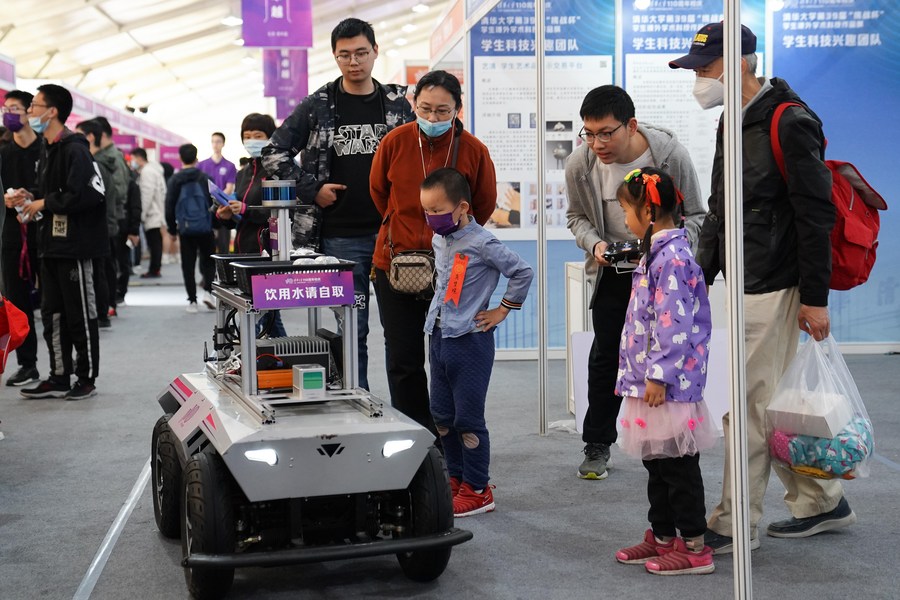
The Chinese scientific community will collaborate with international peers to promote science literacy, so as to better equip people around the world with the knowledge to make informed decisions related to science and technology, and help them address critical global challenges.
Zhang Yuzhuo, vice-president of the China Association for Science and Technology, said common challenges such as climate change, marine pollution, loss of biodiversity and desertification are threatening the Earth's ecosystems and our lives.
"Adhering to green development and building an ecological civilization is a necessary choice to address environmental challenges, promote the progress of civilization and achieve sustainable development," he said during the opening ceremony of the 2021 World Conference on Science Literacy in Beijing on Tuesday.
Zhang said China attaches great importance to building an ecological civilization and participating in global environmental governance, guided by the principles of innovation, coordination, green development, openness and sharing.
"The realization of green development is not possible without the support of science and technology, the awakening of everyone's ecological awareness, and the improvement of our environmental protection capabilities," he said, adding this will require continuous enhancement of public science literacy.
Building consensus, meeting shared responsibilities, deepening pragmatic cooperation, and encouraging the sharing of knowledge will be crucial in improving science literacy for green, sustainable development, Zhang said.
"We would like to uphold the spirit of openness, trust and cooperation, and build partnerships with science and technology communities from all over the world," he said.
Peter Gluckman, president of the International Science Council, said a scientifically literate person should know what science can and cannot do, and how science relates to and integrates with other systems of knowledge.
Finding an accurate and effective way of communicating scientific knowledge to the public in the face of uncertainty and risk is a challenge that the global scientific community and science communicators should strive to overcome, he said.
Gong Ke, president of the World Federation of Engineering Organizations, said in a time of digital revolution and open science, just having scientific knowledge is not enough, and people need to know more about the process, rationale and ethics of science.
"Public scientific literacy is an important basis for realizing the transformation toward sustainable development," he said.
Romain Murenzi, executive director of The World Academy of Sciences, said science literacy is a continuum of learning to enable individuals to achieve their goals, develop their knowledge and potential, and participate fully in wider society.
"Science literacy should be an evolving stage rather than a status to acquire," he said, adding the COVID-19 pandemic and the climate crisis have highlighted the importance of science literacy and education, as well as the need to combat global inequalities.
"Misinformation kills; science literacy saves lives," he said. Promoting scientific approaches and the use of evidence-based analysis, along with long-term investment in science institutions in developing countries will help reduce inequalities and raise science literacy in these regions, he added.
Satryo Brodjonegoro, president of the Indonesian Academy of Sciences, said it is important to empower communities to act on their scientific knowledge, and have sufficient shared resources so that the varying abilities of community members can work in concert, so that they can more effectively use their collective science literacy to achieve their goals.





